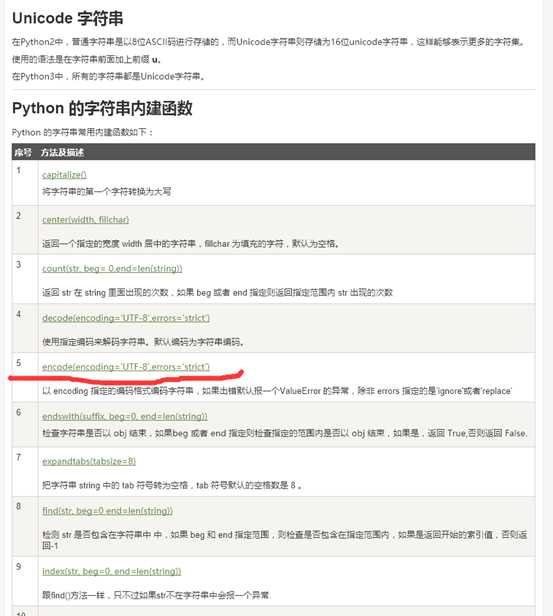标签:int 编码格式 nbsp 需要 回文 rac pwd cep for
def pojie_zip(FilePath,PwdPath): zipFile = zipfile.ZipFile(FilePath , ‘r‘ , zipfile.ZIP_DEFLATED) passFile = open ( PwdPath ,‘r‘ ) file = zipFile.namelist() for pwd in passFile.readlines(): Pwds = pwd.rstrip(‘\n‘) Bpwd=Pwds.encode("utf-8") #转换编码 try: zipFile.extractall(‘F:/None‘,None,Bpwd) for file in zipFile.namelist(): zipFile.extract(file , r‘F:/None‘ , Bpwd) print( "1" ) zipFile.close() break except: pass passFile.close() zipFile.close() if __name__== ‘__main__‘ : pojie_zip( ‘F:/test.zip‘ , ‘F:/pwd.txt‘ )
/******************** 心得 **********************/
先说 File 文件
zipFile = zipfile.ZipFile(FilePath , ‘r‘ , zipfile.ZIP_DEFLATED)
打开一个文件,并返回这个对象;
FilePath:打开文件的路径
’r‘:说明打开的方式 (这里是只读形式)
zipfile.ZIP_DEFLATED: 是说压缩编写的方式(具体api介绍)
passFile = open ( PwdPath ,‘r‘ )
打开一个文件,并返回这文件对象;
PwdPath:打开的文件路径
’r‘:说明是只读方式
file = zipFile.namelist( )
返回打开的zip包内的所有文件名,包括目录下的文件名,返回类型<class ‘list‘>类型的字符串
passFile.readlines( ):
返回文件的一行内容,返回类型 <class ‘str‘> 类型的字符串
Pwds = pwd.rstrip(‘\n‘)
rstrip(char) 默认去除字符串后面的空格,这里是要求去除 \n ,这个函数是 python 3版本以上使用
python 2版本为 strip(char) 没有前面的 r。 因为是pwd是<class ‘str‘>类型 所有 Pwds也是这个类型的字符串
Bpwd=Pwds.encode("utf-8") #转换编码
这个方法是将<class ‘str‘>类型 转换为 <class ‘tybe‘>类型,如果不转换 则下个函数无法使用Bpwd变量
zipFile.extractall(‘F:/None‘,None,Bpwd)
文件对象调用 extractall()函数来解压 zip 文件,解压所有文件
参数1:是将解压的文件保存在哪里或哪个文件夹下面,参数类型<class ,‘str‘>
参数2:是要解压的具体文件,这里None是让它默认解压所有文件
参数3:是解压需要的密码,这个密码需要 <class ‘type‘> 类型的字符串,这里有两种方法可以使用这个类型 第一种是 b"123" 加前缀 b ,第二中就是使用上面的函数将变量转换为这个类型。
zipFile.extract(file , r‘F:/None‘ , Bpwd)
和上面的函数一样,只不过是解压单个文件,参数的位置不同
参数1:需要解压的文件名,参数类型<class ,‘str‘>
参数2:需要解压完存放的地方,参数类型<class ,‘str‘>
参数3:解压时需要的密码,这里的密码也是需要 <class ‘type‘>类型的字符串,两种方法同上
passFile.close()
zipFile.close()
两个对象都是调用关闭 io 的方法
总结: 写的时候没怎么思考,对函数的理解不太彻底,在运行报错的时候总是不管不顾的百度去搜索,找到后复制粘贴就不了了之了,这个破解里卡的最厉害的部分就是 zipFile.extractall(‘F:/None‘,None,Bpwd) 这个函数的参数都需要什么类型,我一开始没不知道,所以运行时总是报错,要不就是解压出来后文件夹目录是空的,直到最后想起别人的提醒,才慢慢的向参数类型这方面的查找,最后找了半天总算是找到了。总结你对一个函数要了解透彻,不然运行报错你都不知道错在哪里。
解决问题的网址:
开始是想字符串转数字的思路:
第一个是字符串与数值的转换:
http://blog.163.com/liuyuhuan0915@126/blog/static/782654482011413114712117/
s = string.atoi( ‘ 18 ‘ , 16)
(即‘18‘为16进制数的字符串,转换为对应的10进制整数形式)
通过查 api 知道了这个 转换时在 python 2 版本就被抛弃了得,所以不能用。其中还一些和它同等类的函数一样是被抛弃的
string.atof(s) 浮点数转换
第二是通过切片查找转换类型:
https://segmentfault.com/q/1010000002620209
def find(s): for i in range(len(s)): if not ‘0‘<=s[i]<=‘9‘: return i return len(s)
s = ‘234jdsf23232ks‘ idx = find(s) t = int(s[ 0 :idx])
但是 通过 type(t) 的出的类型是 <class ‘int‘>类型 显然这不是我需要的 <class ‘byte‘>的类型
后来通过找 api 才知道 这个 <class ‘byte‘> 类型是 Unicode 编码格式,所以我想是不是可以通过自定义编码格式改它的类型,最终在这个网站上找到了修改字符串编码格式的函数
http://www.runoob.com/python3/python3-string.html

标签:int 编码格式 nbsp 需要 回文 rac pwd cep for
原文地址:http://www.cnblogs.com/Engi-xx/p/6306294.html